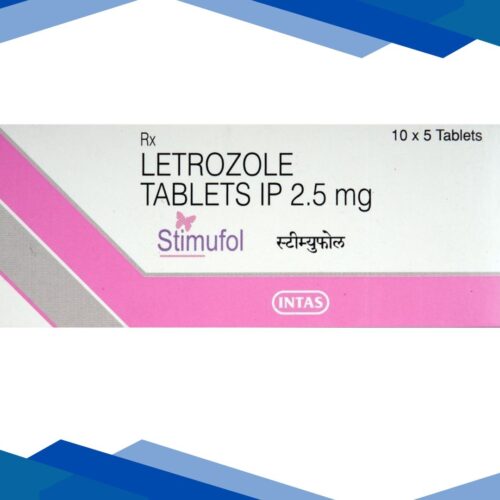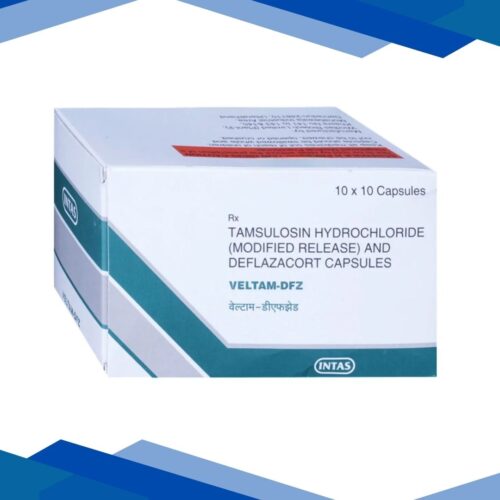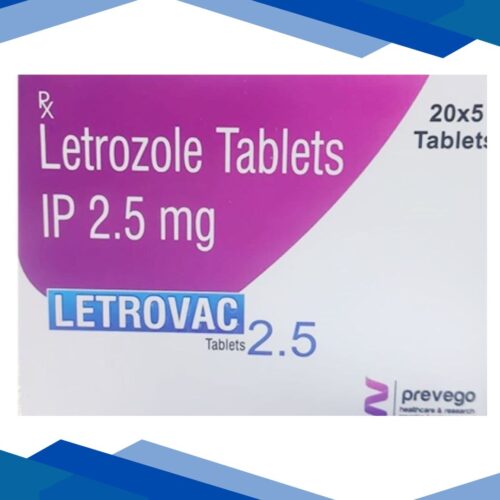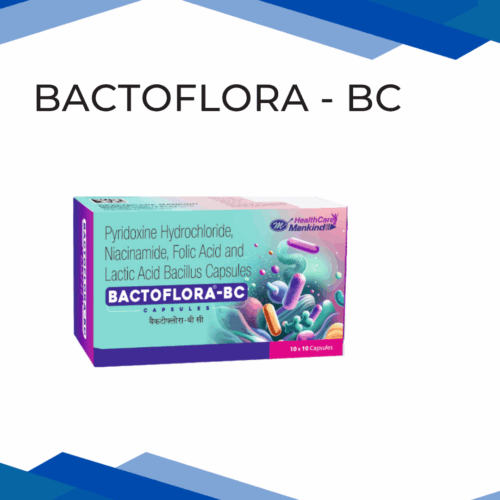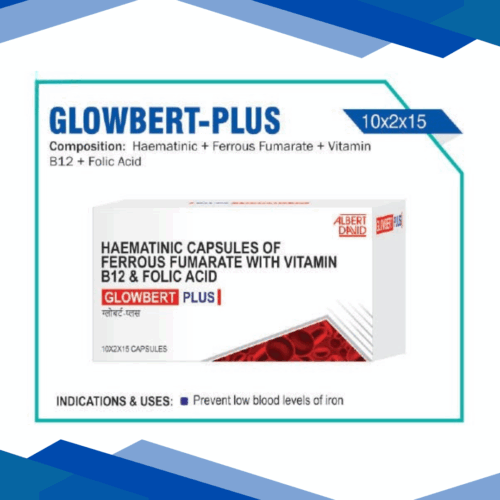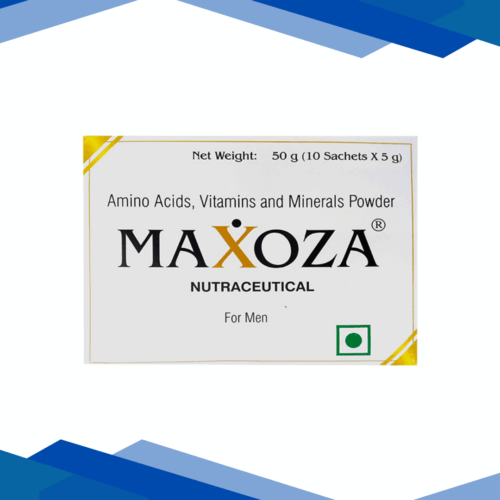Stimufol 2.5mg Tablet
VELTAM DFZ Capsule 10’s
DEFCON 30mg Tablet 10’s
Berocin-LB
❌ Due to high demand, this product is currently out of stock. New stock will be available shortly.
👉 Click here to Buy Same Salt medicine
No Prescription yet? Don’t worry! Click Here to Get Online Consultation
Why Prescription is Required?
✅ Providing Right Medicines
Prescriptions are complex documents. We proofread and recheck at various steps to provide you the right medication in the correct form and dose.
⚖️ Helps Comply with the Law
Most medicines cannot be sold without a valid prescription, as per the Drugs and Cosmetics Act, 1940 and Rules, 1945.
Book Appointment with Doctor
This combination is used to support digestive health, improve nutrient absorption, and treat or prevent vitamin deficiencies. Lactic acid bacillus helps restore healthy gut flora, while the B-complex vitamins aid in energy production, nerve function, and red blood cell formation. For more details kindly click on Medicine Salts below:
Biotin
BIOTIN
Overview:
Biotin, also known as Vitamin B7 or Vitamin H, is a water-soluble vitamin that helps your body turn food into energy. It’s best known for improving hair, skin, and nails, and is often used in beauty and health supplement
Classification: Biotin is part of the B-complex vitamin group.
Uses:
Support healthy hair, skin, and nails
Prevent or treat biotin deficiency
Help with brittle nails and hair loss
Improve energy levels
Support metabolism of fats, carbohydrates, and proteins
Aid in nerve and brain health
How It Works:
Break down nutrients (like carbs, fats, and proteins) into usable energy
Strengthen hair roots, nails, and skin cells
Support enzyme activity for proper body function
Maintain healthy nerves and brain function
It’s like a helper vitamin that keeps your energy up and appearance fresh.
Dosage: As prescribed by your doctor.
Side effects:
Biotin is generally safe, but in rare cases, people may experience:
Mild stomach upset
Skin rashes or acne (if taken in high doses)
Unusual lab test results (may affect blood test accuracy)
Usually, side effects happen only with excessive use.
Precautions:
Don’t take more than the recommended dose—too much doesn’t give extra benefit.
Let your doctor know you’re taking biotin—it can affect blood test results.
If you’re pregnant or breastfeeding, check with a doctor first.
People with hormonal acne should use caution, as biotin may worsen breakouts in some.
Choose trusted brands of supplements to ensure quality.
Disclaimer: This content is for informational purposes only. Always consult a healthcare provider for medical advice and proper
Folic Acid
FOLIC ACID
OVERVIEW
Folic acid (vitamin B9) is a B vitamin supplement that may be used to prevent and treat folate deficiency (low blood levels of folate) that can cause megaloblastic anemia.
CLASSIFICATION
B-vitamin
USES
Folic acid is a B complex vitamin effective in the treatment of megaloblastic anemias due to a deficiency of folic acid (as may be seen in tropical or nontropical sprue) and in anemia of nutritional origin, pregnancy, infancy, or childhood.
HOW IT WORKS
Folic acid is approved for the prevention and treatment of folate deficiency. Healthy levels of this vitamin, which is really a hormone, not only helps form red blood cells, it protects your brain health and supports a healthy pregnancy.
DOSAGE
As directed by the physician
PRECAUTIONS
Tell your doctor if you are pregnant or plan to become pregnant before using folic acid; folic acid requirements are markedly increased during pregnancy, and deficiency may harm a fetus. Folic acid passes into breast milk. Folic acid requirements are markedly increased while breastfeeding; however, amounts present in breast milk are adequate to fulfil infant requirements. Consult your doctor before breastfeeding
SIDE EFFECTS
Redness
skin rash
itching
feeling unwell (malaise), and
respiratory difficulty due to bronchospasm
Disclaimer
This content is for informational purposes only. Always consult a healthcare provider for medical advice and proper dosage.
PRECAUTIONS
Read the label carefully before use
Store in a dry and dark place at a temperature not exceeding 30C. Do not freeze
Keep out of reach of children
SIDE EFFECTS
· Redness
· Dryness
· Itching
Disclaimer
This content is for informational purposes only. Always consult a healthcare provider for medical advice and proper dosage.
Lactic Acid Bacillus
Lactic acid bacillus
Overview
Lactic Acid Bacillus belongs to the class of ‘probiotics’, primarily used to treat diarrhoea. Lactic Acid Bacillus also effectively treats irritable bowel syndrome, lactose intolerance, Crohn’s disease, and bacterial overgrowth in the intestines. Diarrhoea is a condition in which bowel movements are too frequent, leading to lose and watery stools.
CLASSIFICATION: Probiotics
USES
Lactic acid bacillus is a medicine that treats diarrhoea, especially when it happens because of antibiotics. It’s also used to help with lactose intolerance, Crohn’s disease, and when there’s overgrowth of bacteria in the gut.
HOW IT WORKS
Lactic Acid Bacillus produces lactic acid that prevents harmful bacteria from multiplying and supports the digestion process. it helps ease symptoms like diarrhoea, bloating, and gas
DOSAGE: As directed by the physician
PRECAUTIONS
Safe for most individuals, but consult a doctor before use
Avoid if you have a weakened immune system or severe illness
Take at least 2 hours after antibiotics for better effectiveness
Consult a doctor before use during pregnancy or breastfeeding
SIDE EFFECTS
Mild bloating or gas
Stomach discomfort
Allergic reactions (rare)
Nausea in some cases
Disclaimer:This content is for informational purposes only. Always consult a healthcare provider for medical advice and proper dosage
Niacinamide
Niacinamide
Overview
Niacinamide, or nicotinamide, is a type of vitamin B3. While more research is necessary, taking niacinamide may help reduce inflammation, improve skin elasticity
CLASSIFICATION
Vitamin-B family
USES
Minimizes fine lines and wrinkles
As it stimulates collagen production, including niacinamide in skincare can help improve the elasticity and firmness of the skin, and reduce the appearance of fine lines and wrinkles. This can result in a more youthful and smoother complexion.
Improves skin barrier function
This is one of the most important uses of niacinamide. It enhances the skin’s natural barrier function, which is essential for maintaining optimal hydration levels and protecting against environmental stressors. A strengthened skin barrier leads to improved moisture retention and reduced sensitivity.
Calms inflammation
Whether you have sensitive or irritated skin, niacinamide can help soothe and calm inflammation. Niacinamide has anti-inflammatory properties that can alleviate redness, irritation, and skin conditions such as rosacea.
HOW IT WORKS
It controls the NFκB-mediated transcription of signalling molecules by inhibiting the nuclear poly (ADP-ribose) polymerase-1 (PARP-1)-inflammatory properties that can alleviate redness, irritation, and skin conditions such as rosacea.
DOSAGE
As directed by the physician
PRECAUTIONS
· Niacinamide is generally safe when taken in the right amount, especially if you follow the recommended dose for your age. But taking too much can lead to some problems.
· It can worsen allergies in some people because it increases histamine, the chemical that causes allergy symptoms like itching or sneezing.
· If you have gallbladder issues, liver problems, or stomach ulcers, it’s best to avoid niacinamide, as it may make those conditions worse.
Also, taking very high amounts over time may raise your risk of gout or liver damage. And for kids, it’s especially important not to go over the daily safe limit.
SIDE EFFECTS
· Using niacinamide on your skin is usually very safe, especially for people with healthy skin. Some people with sensitive skin might feel a bit of redness, itching, or a light burning sensation—but this is usually mild.
· When taken by mouth, niacinamide is generally well-tolerated. Your body gets rid of extra amounts through urine, so side effects are uncommon if you’re taking a normal dose.
· Some people may have mild side effects like headaches, nausea, or stomach discomfort.
· Serious side effects are rare, but can happen if you take very high doses (over 3 grams a day). These may include liver issues or high blood sugar.
Disclaimer
This content is for informational purposes only. Always consult a healthcare provider for medical advice and proper dosage
Vitamin B12
VITAMIN B12
Overview
Vitamin B12 is an essential nutrient that helps keep your nerves healthy, supports the production of red blood cells, and plays a vital role in brain function and energy metabolism. Since your body doesn’t make it on its own, you must get it through diet or supplements.
Classification
Vitamin B12 is a water-soluble vitamin and part of the B-complex family. It’s also known as cobalamin.
Uses
Treats or prevents B12 deficiency
Helps with anemia, particularly pernicious anemia
Supports nerve health and helps manage symptoms like tingling or numbness
Boosts mental clarity, memory, and energy
Often used to support overall well-being in people with poor absorption or dietary gaps (e.g., vegans, elderly)
How It Works
Vitamin B12 assists in the formation of DNA, red blood cells, and myelin (the protective covering around nerves). It also plays a key role in how the body converts food into energy and helps maintain neurological health.
Dosage
As prescribed by your doctor.
Side effects
B12 is generally very safe, especially in recommended amounts. Rare or mild effects may include:
Mild diarrhea
Upset stomach
Skin rash or itching
In some cases, acne-like breakouts or redness at the injection site (if given by shot)
Precautions
While Vitamin B12 is generally safe and well-tolerated, there are a few things to keep in mind:
Allergic Reactions: Rarely, some people may be sensitive to B12 injections and could develop allergic reactions, such as rash, itching, swelling, or difficulty breathing. Always inform your doctor if you’ve had allergies to vitamins or medications.
Medical Conditions: If you have certain conditions like
Leber’s disease (a rare eye disorder), B12 may worsen vision problems
Kidney issues or low potassium levels, B12 supplementation should be monitored
Iron or folic acid deficiency, it’s important to treat these too, as B12 alone may not fix certain types of anemia
Pregnancy & Breastfeeding: B12 is generally safe and even recommended during pregnancy and breastfeeding, but always follows the doctor’s advice on the right dose.
Supplement Form: Whether you’re taking it as an injection, tablet, or lozenge, use it exactly as prescribed. Too much isn’t usually harmful, but high doses over long periods should be taken under medical guidance.
Disclaimer
This content is for informational purposes only. Always consult a healthcare provider for medical advice and proper dosage
Vitamin B6
VITAMIN B6
Overview
Vitamin B6 is an essential nutrient that your body needs to stay healthy. It plays a big role in keeping your nerves, brain, and blood cells working properly. Since your body can’t make it on its own, you get it from food or supplements
Classification
Vitamin B6 is a water-soluble vitamin, part of the B-complex family. This means it dissolves in water and doesn’t stay stored in the body for long — so you need to take it regularly through diet or supplements.
Uses
Vitamin B6 is used for:
Boosting brain function and mood
Supporting healthy nerves
Forming red blood cells
Helping the body break down proteins and carbs
Relieving nausea during pregnancy
Improving PMS symptoms
Preventing or treating vitamin B6 deficiency
How It Works
Vitamin B6 helps the body:
Make neurotransmitters – chemicals that send messages in the brain
Produce hemoglobin – the part of red blood cells that carries oxygen
Break down food into energy
Keep the immune system strong
In short, it helps your brain, nerves, and metabolism stay in balance.
Dosage
As prescribed by your doctor.
Side effects
Usually safe when taken in normal amounts. But in large doses or long-term use:
Numbness or tingling in hands and feet
Nausea or stomach pain
Sensitivity to sunlight
Tiredness or headache
Nerve damage (very high doses over time)
Precautions
Don’t take high doses for a long time without a doctor’s advice.
Talk to your doctor if you have nerve problems, kidney disease, or are on other medications.
Safe during pregnancy and breastfeeding in recommended doses, but avoid overdosing.
Always follow the label or doctor’s instructions for the correct dosage.
Disclaimer
This content is for informational purposes only. Always consult a healthcare provider for medical advice and proper dosage
